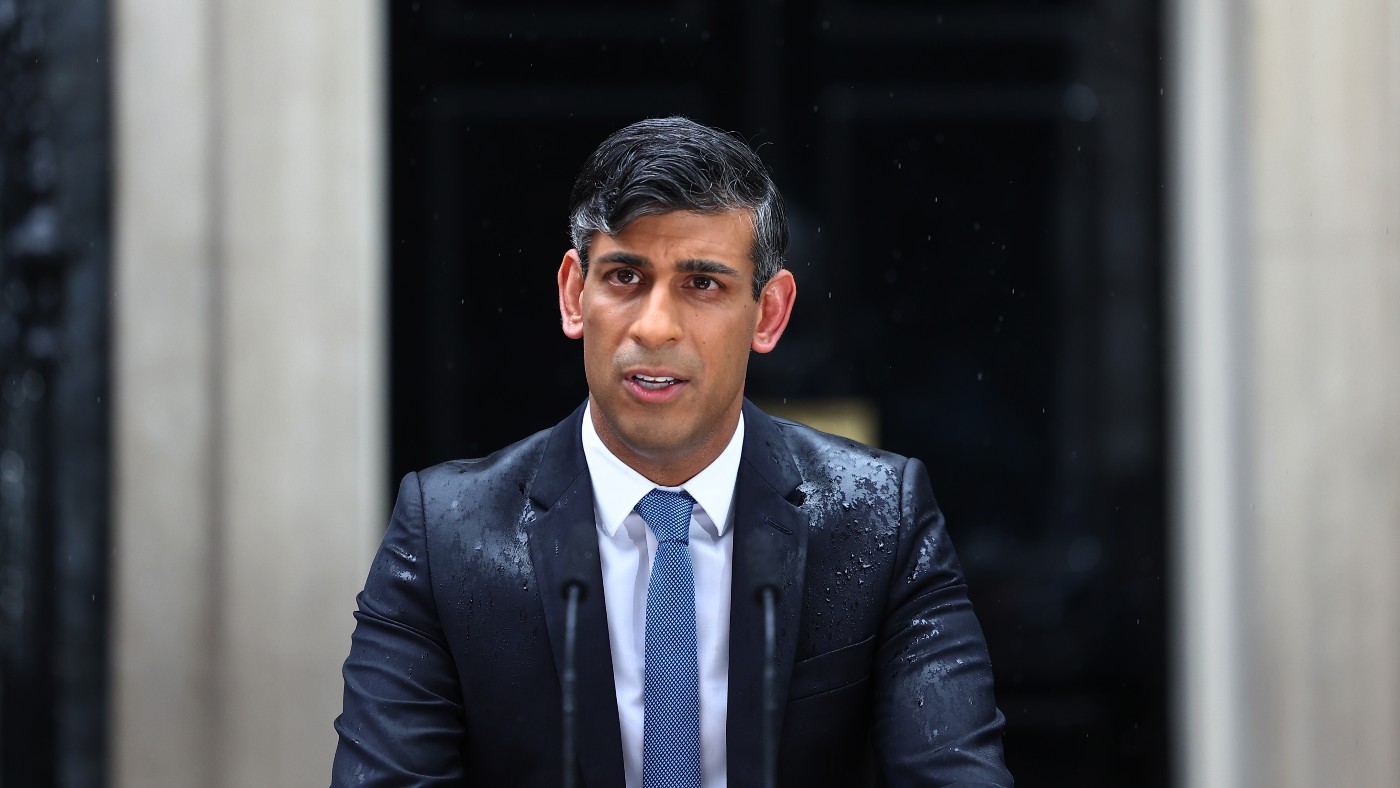The five moments it went wrong for the Tories
From Partygate to the budget that broke Britain, the pivotal points in the Conservative Party's decline

A free daily email with the biggest news stories of the day – and the best features from TheWeek.com
You are now subscribed
Your newsletter sign-up was successful
When Rishi Sunak entered No. 10 in October 2022, buoyed by a well-regarded stint as chancellor, "the hope was that he could pull the party's ratings up to his level".
But in fact, the BBC's former political editor, Laura Kuenssberg, wrote in May, "it is the opposite that has happened". After all Sunak "inherited a political party in a huge mess" and an increasingly unreceptive voting public. As one party insider told Kuenssberg, "after the Tory Party's many bouts of political madness in the past few years, 'the public just doesn't want to listen'".
Here are five key moments in the party's decline:
The Week
Escape your echo chamber. Get the facts behind the news, plus analysis from multiple perspectives.

Sign up for The Week's Free Newsletters
From our morning news briefing to a weekly Good News Newsletter, get the best of The Week delivered directly to your inbox.
From our morning news briefing to a weekly Good News Newsletter, get the best of The Week delivered directly to your inbox.
December 2019: the emperor's new coalition
An 80-seat majority may not seem an obvious harbinger of doom, but "Johnson's victory was much flimsier than it first appeared", wrote John Burn-Murdoch for the Financial Times.
Many of the "red wall" voters who switched their allegiance to the Tories did so out of pragmatism rather than passion. Their vote was a "short-term loan" – and one they were prepared to retract without compunction if the party failed to impress.
And failing to impress was almost inevitable. During the 2019 campaign, the Conservatives had excelled at "being all things to all people". But once actually in power, "that's a lot of different groups left disappointed".
January 2020: the Brexit bubble bursts
When the UK officially left the European Union, the Conservative government was polling at over 50% – and Leave voters were especially hopeful. Between 2015 and 2019, "the proportion of Leave voters who backed the Conservatives jumped from 45% to 74%", wrote Peter Kellner for Prospect. By 2024, only 27% of Leave voters still intend to vote Tory – and Remain voters have fallen away too, albeit at a less precipitous rate.
A free daily email with the biggest news stories of the day – and the best features from TheWeek.com
Why? To put it simply, the benefits of Brexit have failed to materialise. Instead of the promised prosperity, "taxes have gone up, living standards down". With oft-repeated notions that Brexit would lead to lower immigration and investment in the NHS also notable by their absence, it's no wonder that voters "have no real idea any longer what the party stands for".
November 2021: Partygate
On 30 November 2021, the Daily Mirror broke the first story in the lengthy saga that would quickly come to be known as Partygate. The allegations – that government staffers, including Johnson himself, enjoyed social gatherings while the nation was in Covid-19 lockdown – sent both the prime minister and his party "abseiling down the polls", said Politico.
Just before the revelations, the Conservatives were polling at 36% of the vote – by Christmas, that had fallen to 30%, and the Conservatives have not reached that 36% vote share in any YouGov poll since.
Before Partygate, Johnson specialised in shrugging off "career-ending revelations", said the website, but the revelations "ruptured" the notion that "everyone was in the same boat" during lockdown, and unleashed voter fury.
September 2022: the budget that broke Britain
Chancellor Kwasi Kwarteng's deceptively named "mini-budget" managed to "trigger" a "domestic financial crisis", said The Guardian's economic correspondent, Richard Partington. The "ideologically driven" blueprint for radical tax cuts sparked a "run on sterling, gilt market freefall and spooked global investors", and ended the Liz Truss premiership just 45 days after it began.
The turmoil severely dented voter confidence. YouGov voting intention polls carried out five days after the budget gave the Labour Party a 33-point lead over the Tories – an increase of 25 points from polls carried out the week before.
June 2023: (re)enter Farage
Nigel Farage – who founded Reform UK as the Brexit Party – surprised even Whitehall insiders by announcing he was returning to frontline politics to lead the party into the election. Within days of the announcement, YouGov voter-intention polling put Reform just one point behind the Conservatives.
While Britain's first-past-the-post voting system means Reform's popularity will not be reflected in the Commons, the Tories "should, frankly, be terrified", wrote Andrew Marr for The New Statesman in June.
Farage, "whatever you think of him, remains one of the best political communicators in the country", and his rhetoric expertly positioned him as "raising the pirate flag" of revolt for the frustrated right-wing. In his sights? The "listing, drifting and battered galleon that is the Tory Party".
Rebecca Messina is the deputy editor of The Week's UK digital team. She first joined The Week in 2015 as an editorial assistant, later becoming a staff writer and then deputy news editor, and was also a founding panellist on "The Week Unwrapped" podcast. In 2019, she became digital editor on lifestyle magazines in Bristol, in which role she oversaw the launch of interiors website YourHomeStyle.uk, before returning to The Week in 2024.